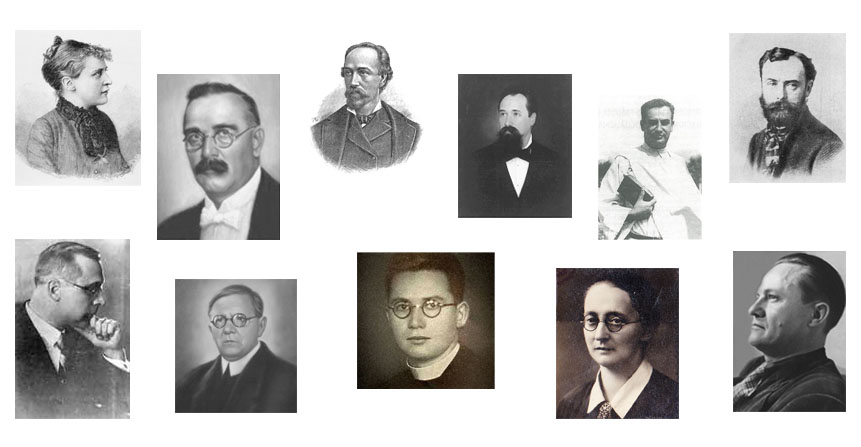On the project
New Topics in Croatian Philosophy from 1874 to 1945
The results published so far represent a good basis for further research into Croatian philosophy between 1874 and 1945, but they do not give a complete picture. The project will deal with topics that were not the subject of either research or valorization. The beginning is year 1874, when the modern University of Zagreb was founded and when the Faculty of Humanities and Social Sciences began its work, which also included the department of philosophy, where philosophers meritorious for the development of modern philosophy in our country taught. In that time first female philosophers in Croatia started working (Kučera, Rossi, Ebenspanger) who in their works followed trends in European philosophical movements.

The year with which the project ends is 1945, when Marxist philosophy enters the center of study and teaching, which marks the beginning of a new era in the philosophical life of Croatia. Although it is a short period of 71 years in which all philosophers probably knew and communicated with each other in a small space, there was still a diversity of philosophical approaches and schools.
They stand out: New Scholasticism, the influence of the development of natural and social sciences, and especially psychology on philosophy, Neo-Kantism, Herbartism and German idealism. It is important to emphasize that philosophy began to be systematically created in the Croatian language at that time, which was a rarity before that. In parallel with that, Croatian scientific and philosophical terminology began to develop.
Within the project, we will explore eight previously unaddressed topics:
- philosophical-educational topics;
- the relationship between psychology and philosophy;
- the beginnings of feminist philosophy among Croatian female philosophers and intellectuals;
- aesthetic themes;
- cognitive theory by Hijacint Bošković;
- Gjuro Arnold’s metaphysics;
- Zimmermann’s ethics and noetics;
- controversy between Kruno Krstić and Stjepan Zimmermann.